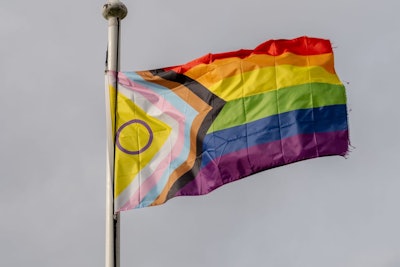Three Florida educators have filed a lawsuit challenging a rule that stops transgender and nonbinary teachers from using their preferred pronouns at school, according to the Southern Poverty Law Center (SPLC).
The policy, Florida Statute § 1000.071(3) (2023) (“Subsection 3”), puts restrictions on the expression of preferred personal titles or pronouns that do not correspond to biological sex.
Among its other stipulations, the rule states that “an employee or contractor of a public K-12 educational institution may not provide to a student his or her preferred personal title or pronouns if such preferred personal title or pronouns do not correspond to his or her sex.”
The three teachers, Katie Wood, Jane Doe, and AV Schwandes, are asking for an injunction against Subsection 3, alleging that by banning this expression with threats of decertification and termination, the policy hinders free speech and discriminates based on sex. The three are being represented by the SPLC, Southern Legal Counsel, and Altshuler Berzon, LLP.
“There is no American right more fundamental than freedom of expression and protection from the government that weaponizes their disagreements on that expression. Subsection 3 violates both of these,” Wood said. “I am a transgender teacher, but I am a human being first. As a human being living in America, I demand to be treated with fairness and equity at work. Those who support and enforce this law are trying to take my voice away and bury my existence. But they will not.”
Schwandes is also asking for damages from their employer, who fired them for violating the rule.
“I lost my job, and maybe my career, because Florida lawmakers don't want maturing young adults to know that I exist. As a high school teacher, I should not have to pretend to be someone I'm not simply because I don’t ascribe to someone else’s rigid ideas of gender,” Schwandes said. “Tolerance is a two-way street. Just as I respect the faith-based beliefs of others, my civil rights need to be respected because I am an American, and I do exist.”





















